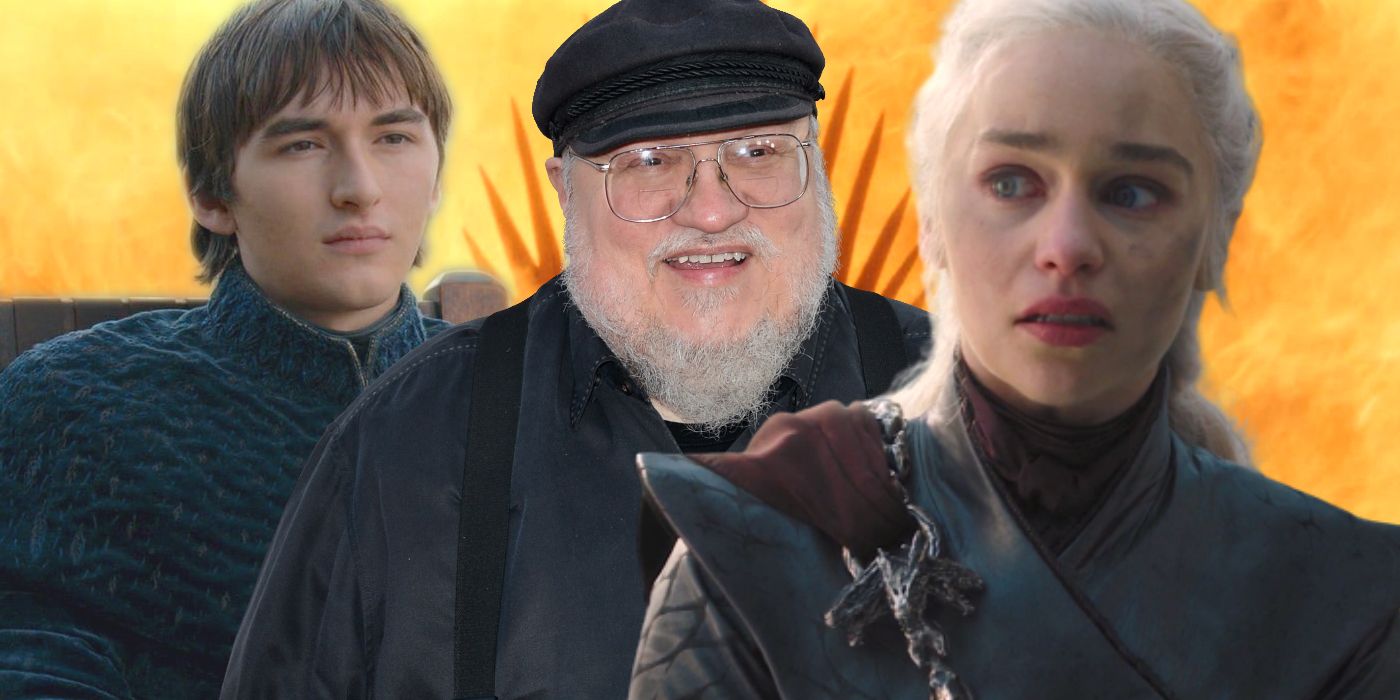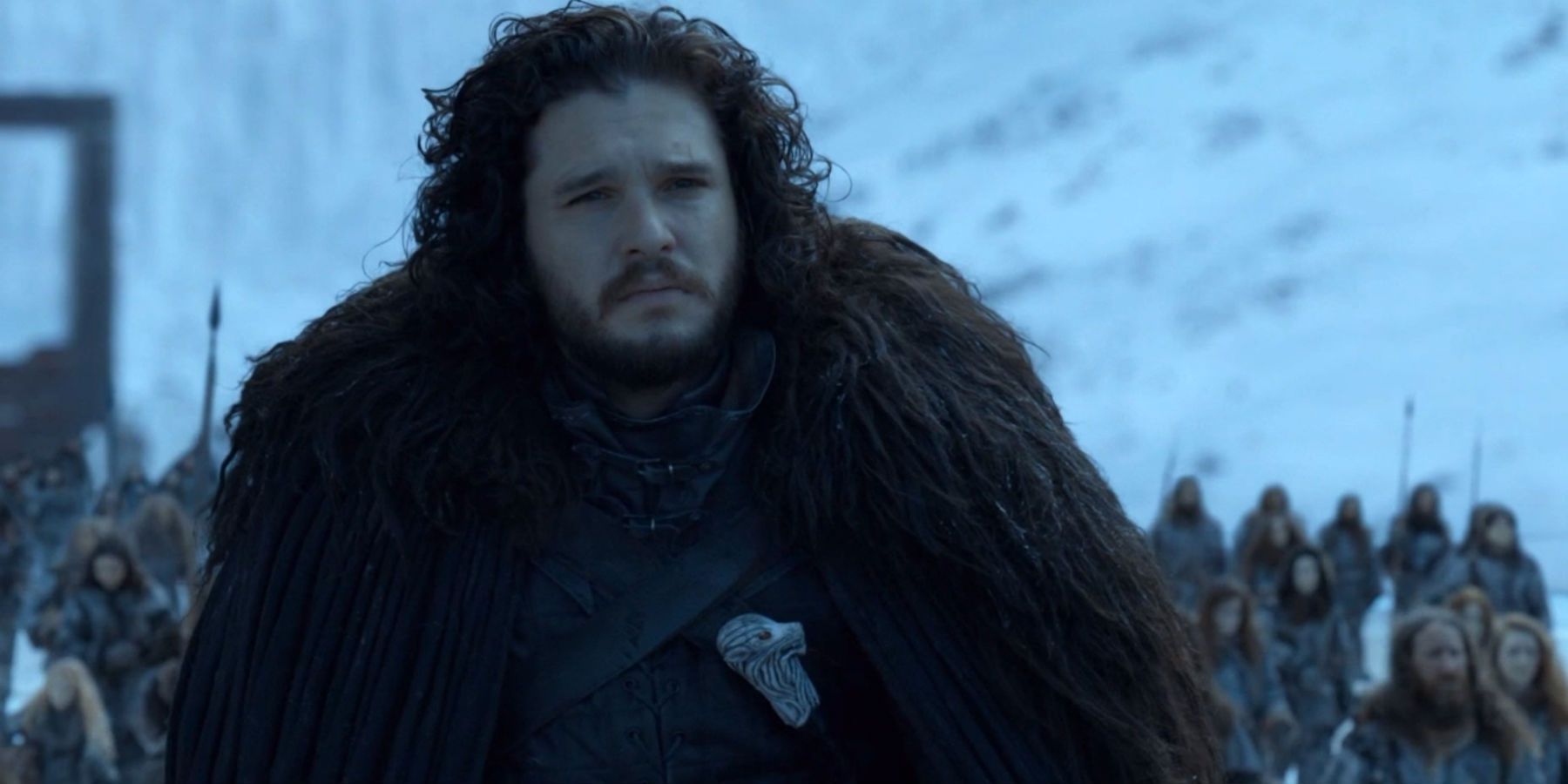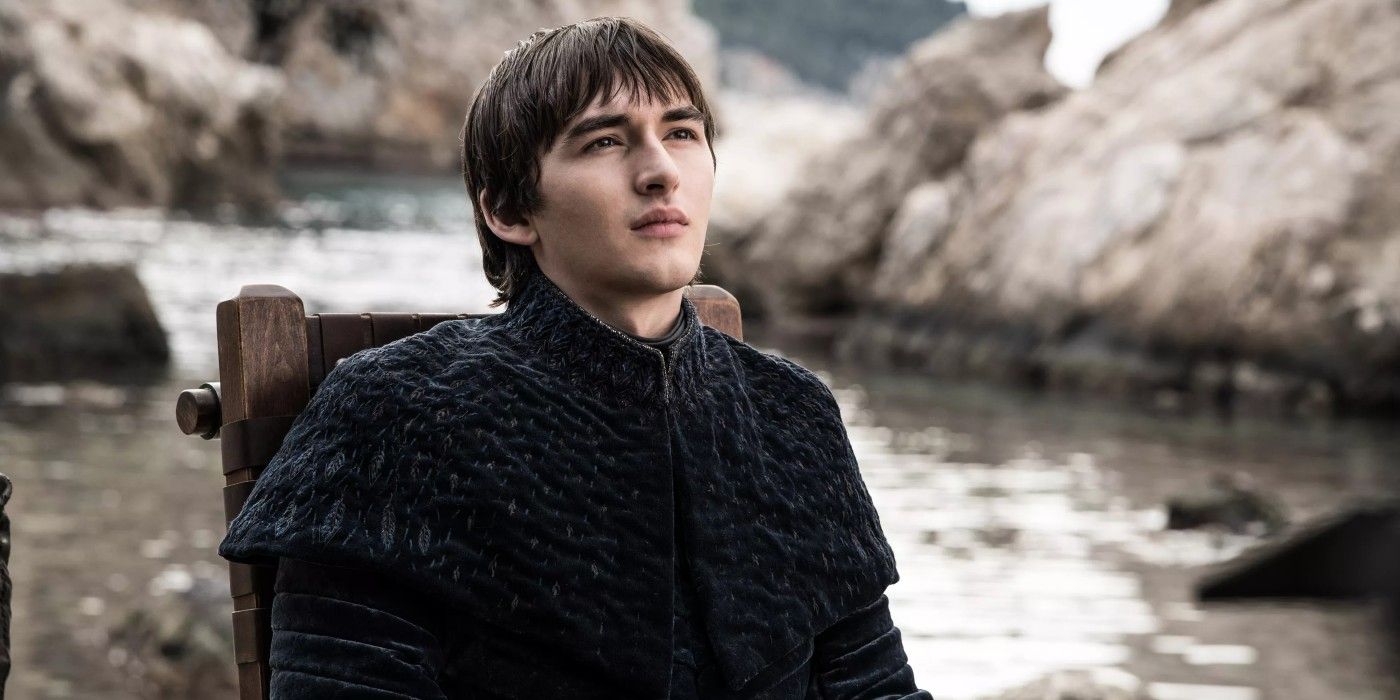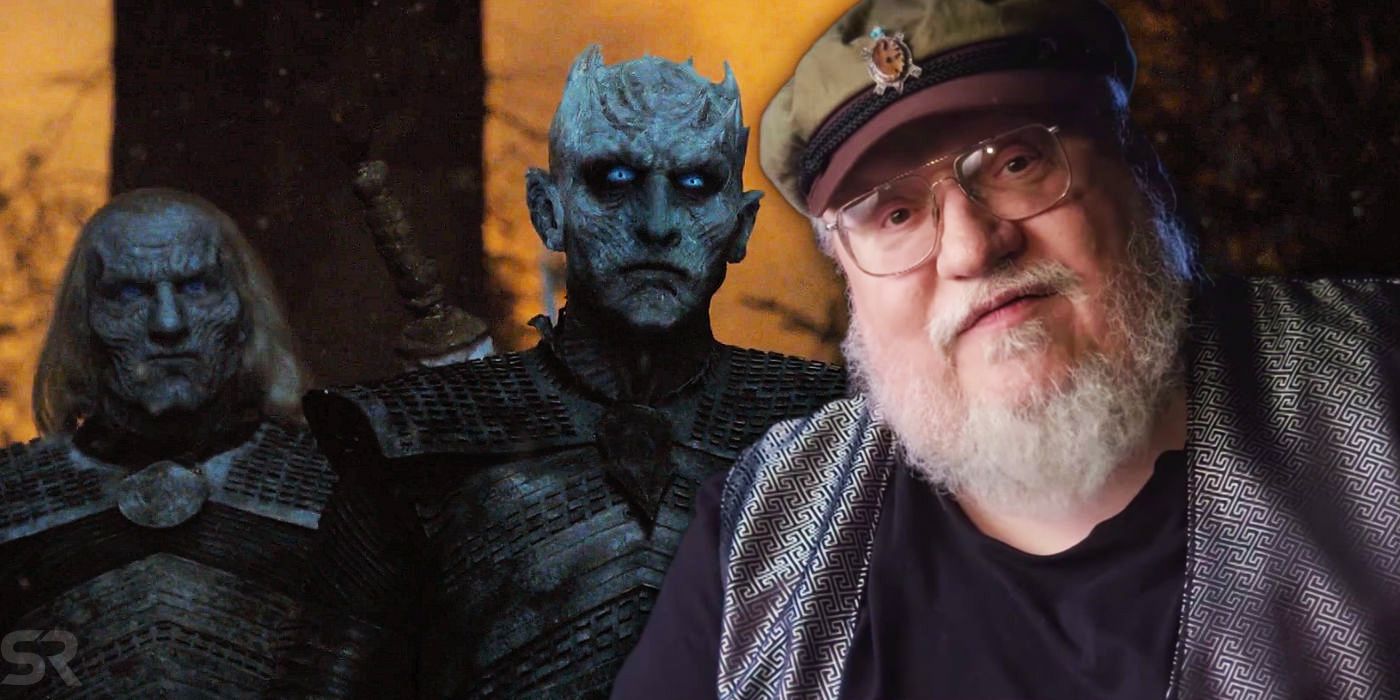The ending to Game of Thrones proved divisive, to say the least, but there's reason to believe the conclusion to George R.R. Martin's A Song of Ice and Fire book series will also be controversial. Game of Thrones is one of the biggest TV shows of all time, and its first four seasons in particular were acclaimed by critics and viewers (both those who'd read the books and those who hadn't). The problem for showrunners David Benioff and D.B. Weiss was that they were quickly catching-up with and subsequently overtaking the source material, as Martin has continually struggled to write The Winds of Winter (and still has another book due after that).
There was a noticeable shift in storytelling once Game of Thrones overtook A Song of Ice and Fire around season 5, shifting more from Martin's character-driven style to a more fast-paced plot-driven narrative. While that didn't immediately lead to major issues (though season 5 is among its worst), it did end up creating a butterfly effect, as the changes made then meant a truncated, quicker ending than many would've liked.
This all came to a head with Game of Thrones season 8, which wrapped things up in just six episodes. There was an immense backlash, including waves of criticism and even petitions to re-do the show, and Game of Thrones has become the internet's new punching bag for bad endings. While some of the criticisms were valid (and others less so), the series not only took some elements from the books, but highlighted that when Martin does finish his series, there will be some disappointed readers.
Game of Thrones' Divisive Ending Followed George R.R. Martin's Book Plan (In Part)
While it is hard to know with 100% certainty what Game of Thrones' ending took from Martin's books besides King Bran (which has already been confirmed as a plot point the author told the showrunners about), it is likely that much of what happened in "The Iron Throne" will also play out in the books. On top of Bran's coronation, it's quite easy to imagine Tyrion once again being named the Hand of the King, this time with a greater sense of irony to him landing the role. It's also easy to imagine the destruction of the Iron Throne itself being from the mind of Martin, given his love of both symbolism and of bringing things full circle across history.
Quite how Daenerys dies (though she is likely to) remains open for much debate, but the idea of her most controversial moment - the destruction of King's Landing - happening in the books is a reasonable assumption to make. There's been plenty of setup on the page for such a turn, and with the plot currently suggestion two Targaryens are going to be vying for the Iron Throne, then perhaps the most likely take will be that she destroys it in what's effectively a new Dance of the Dragons against Aegon (or fAegon) Targaryen. Game of Thrones never included that character, but it's fair to guess that they nonetheless took the notion of Daenerys' turn and fiery reign and ran with it in their own story.
The fates of the Starks beyond Bran are somewhat up in the air too. Jon Snow going back to (and beyond) the Wall feels about as fitting an ending as is possible for him, and again the kind of thing Martin would dream up (not just because it's a big link between the endings of Game of Thrones and Lord of the Rings, cementing Jon as the story's Frodo, not its Aragorn). Sansa ruling the North from Winterfell also feels likely, those there's a question of whether it'll be as Queen or simply Warden, since the issue of independence, while pertinent, may subside given her brother is the ruler. Arya is a bit of a wildcard in all of this, but her roaming free is well established by her arc already (and her direwolf), so her departure from Westeros could also have been a Martin idea.
A Song of Ice & Fire's Ending Will Be Controversial
With many of the destinations likely to match-up (albeit with some different journeys there), then it feels inevitable that the ending to A Song of Ice and Fire will be controversial. The backlash won't match that received by Game of Thrones, not least because the audience for the novel series is smaller, less vocal than, and simply functions differently to that for a TV show millions and millions of people around the world are watching simultaneously. But nonetheless, controversial it will be. Much in the same way Game of Thrones was always likely to be divisive to an extent, there's almost no way to end this massive, long-running, much-hyped story that pleases everybody.
Aside from that, the fact that it will contain some very similar elements means that it will cause some of the same division. There may be sections of the fanbase hoping for completely different outcomes, and when they don't happen, that will lead to disappointment. And while Martin has done a better job of laying the foundations, the huge swings that are seemingly planned - most specifically Daenerys' turn, Bran becoming King, and what may happen between Jaime and Cersei (though their deaths will likely happen earlier) - are going to be divisive no matter what, because the very idea of them is, especially when someone like Dany has such an army of loyal fans who'll refuse to accept any such villainous switch.
There are also signs that there'll be at least a partial shift in style and tone for the final entries in A Song of Ice and Fire. While the books have long contained some elements of horror (and plenty of weirdness), that should ramp up considerably when factoring in the increased role of the Others as Martin builds to The Long Night (which will have to play out differently, given the lack of Night King in the novels), and whatever Eldritch terrors Euron Greyjoy may end up bringing about, which may be a jarring shift for some.
And while Game of Thrones streamlined things too much, the books have perhaps the opposite problem: Martin has spun off into so many different directions, following every breadcrumb trail down narrative cul-de-sacs, that the scope makes it difficult to imagine how everything in play can possibly coalesce. When combining the sheer weight of expectation with some of the plot twists and developments that are ostensibly promised by the show's own conclusion, then it's hard to see a way that there won't be division when the final book in the series, A Dream of Spring, comes to a close.
Why ASOIAF's Ending Will Still Be Better Than Game of Thrones
While there will be sections of the fanbase who will be unhappy, disappointed, and perhaps even angry over how A Song of Ice and Fire ends, it's also extremely likely that the ending of the books will be better than Game of Thrones. That's not necessarily a knock on Game of Thrones' finale either, which, despite its many detractors, did ultimately feel narratively and thematically satisfying, and made many of the right emotional choices. Instead, it's more a testament to the much more detailed world that Martin has created on the page, and that, ultimately, this is his vision he's seeing through to the end, rather than some hybrid of it.
Although fans may feel a sense of frustration with how long Martin is taking to write The Winds of Winter (never mind A Dream of Spring, and aside from the fact he doesn't owe anybody anything), his more careful and patient plotting should pay dividends in the long run. The biggest criticism of Game of Thrones' ending - and the one it's very difficult to defend - is that it was rushed, which goes across the final two seasons (if not more). And while Martin does have his own faults as a writer, there's more chance of Hot Pie claiming the Iron Throne or HBO remaking the entire series than there is of him being accused of rushing the ending.
Furthermore, there is the aforementioned fact that the controversial elements will make more sense on the page. Not only is that because some of the circumstances will be different, but because of the style of the books, which charts the storylines from certain POV characters. How much better may Daenerys' fiery destruction of King's Landing be, for example, if we get to fully experience her and Tyrion's thoughts and perspectives on it? How much more satisfying will Bran's time as the Three-Eyed Raven be when audiences can truly understand who and what he is? These decisions will be divisive still, but Martin is a master of setups and payoffs, and that's what he'll deliver in A Song of Ice and Fire's ending that Game of Thrones didn't fully manage for everyone.




